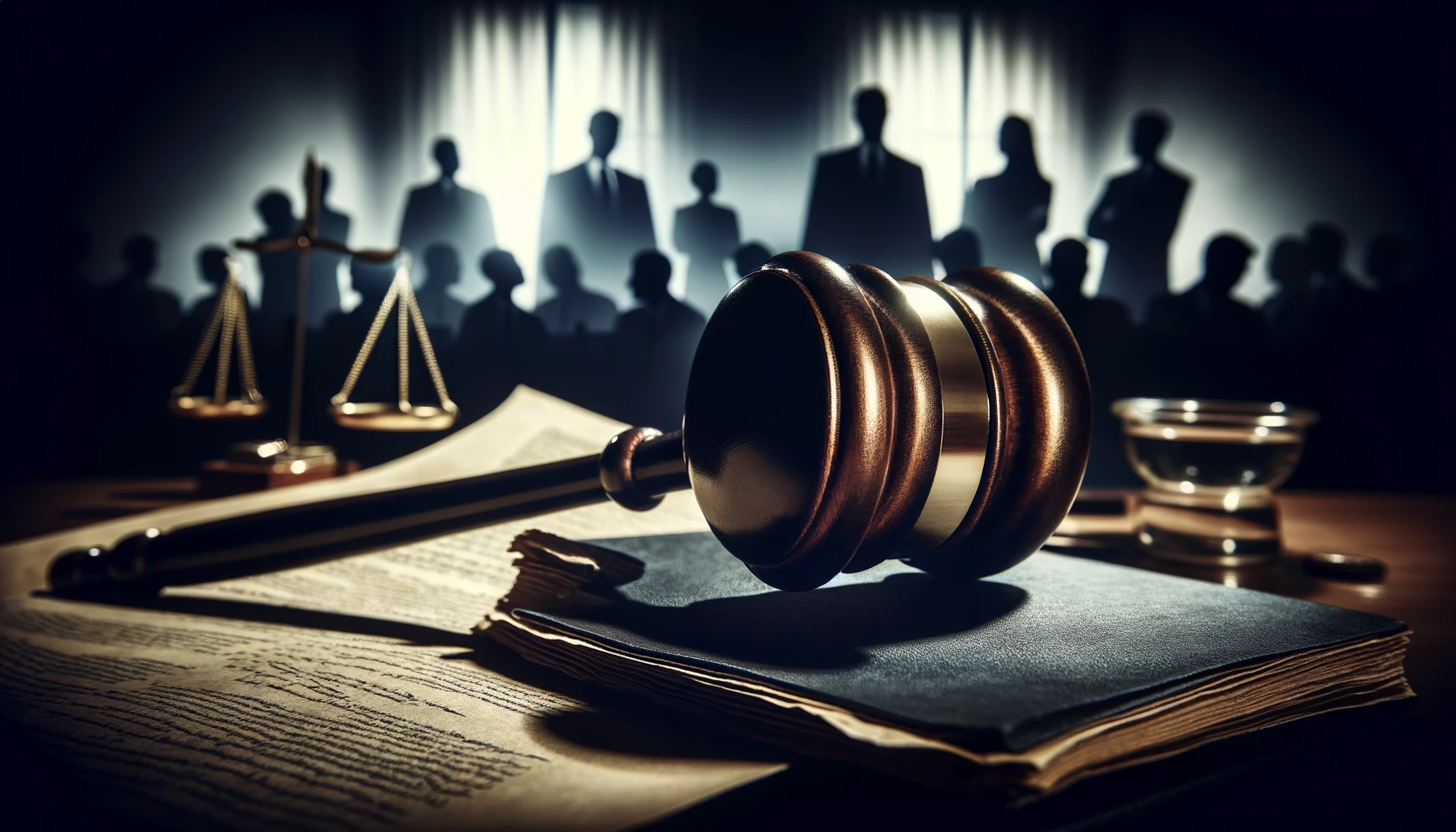In Phoenix, Arizona, several individuals connected to former President Donald Trump have been indicted by an Arizona grand jury for their efforts to keep Trump in power after he lost the 2020 presidential election.
In this case, eleven people were indicted for submitting false documents claiming that Trump, not Joe Biden, won Arizona’s popular vote in 2020. The documents were important because they were meant to officially record who won the state in the presidential election.
Among those indicted, seven names were initially withheld but later identified by NPR. These include Mark Meadows, who was the White House Chief of Staff, and Rudy Giuliani and John Eastman, who were lawyers for Trump.
Arizona Attorney General Kris Mayes, who announced the indictment, stated in a video message, “The people of Arizona elected President Biden. Unwilling to accept this fact, the defendants charged by the state grand jury allegedly schemed to prevent the lawful transfer of the presidency.” Mayes emphasized the importance of upholding American democracy and vowed not to allow it to be undermined.
The indictment also mentions five people who were involved but not charged, including Donald Trump himself.

This case in Arizona marks the fourth instance where charges have been filed concerning “fake elector” schemes. These schemes were attempts by Trump supporters to submit false electoral votes to undermine Biden’s victory. Similar charges have been brought in Georgia, Michigan, and Nevada.
In Arizona, the fake electors included some prominent Republicans such as state Senators Jake Hoffman and Anthony Kern, former Arizona Republican Party Chair Kelli Ward, and Tyler Bowyer, an executive with a conservative group called Turning Point USA.
Jake Hoffman responded to the charges, claiming his innocence and calling the accusations “naked political persecution.”
The investigation into these events has been extensive and complex, starting nearly four years ago and gaining momentum over the past few months. Attorney General Kris Mayes, who took office in early 2023, urged patience with the investigation, which has proceeded behind closed doors. This approach is typical in complex legal cases that involve sensitive information and require detailed investigation.
This indictment in Arizona comes at a time when Trump is also facing charges in Georgia related to the election and other charges in his New York hush money case. Trump is notable for being the first former president to be criminally charged.
This article is based on the following article:
https://www.npr.org/2024/04/24/1236998675/arizona-fake-elector-charges

Background Information
By understanding these key concepts, readers can better appreciate the significance of the legal actions described in the article and recognize how they relate to the broader framework of U.S. democracy and law.
1. The Presidential Election Process in the United States
The United States presidential election occurs every four years and involves a complex system called the Electoral College. Each state is allocated a certain number of electoral votes based on its population, and the total number of electoral votes is 538. To win the presidency, a candidate must receive a majority of these votes, which is at least 270.
Voters in each state cast their ballots for their preferred presidential candidate. However, they are technically voting for a slate of electors pledged to that candidate. These electors then officially cast their votes for the president in a process that takes place after the general election.
2. The 2020 Presidential Election
The 2020 presidential election was highly contentious and polarizing. Donald Trump, the incumbent president and a Republican, was challenged by Joe Biden, a Democrat and former Vice President under President Barack Obama. The election results showed Joe Biden winning both the popular vote and the required majority of electoral votes.
3. Allegations of Election Fraud and Legal Challenges
After the 2020 election, President Trump and many of his supporters claimed that the election was marred by widespread voter fraud and irregularities, despite these claims being widely debunked by various sources including court rulings, state election officials, and the Department of Justice. Trump’s legal team and supporters filed numerous lawsuits in several key states attempting to challenge the results, but most were dismissed due to lack of evidence.
4. What are “Fake Electors”?
In the context of the 2020 election, “fake electors” refers to a group of individuals in swing states who submitted unofficial electoral votes declaring Trump the winner, even though he was not the certified winner in those states. These actions were part of an effort to overturn the election results by presenting alternative slates of electors when Congress met to count and certify the electoral votes on January 6, 2021.
5. The Role of State Officials and the Judiciary in Election Certification
State officials, including Secretaries of State and Governors, play crucial roles in certifying
election results. This certification confirms the official vote count and determines which electors will represent the state in the Electoral College. The judiciary, including state and federal courts, can become involved if there are legal challenges to the election process or results. However, their role is to interpret the law, not to determine election outcomes unless there are legal violations.
6. The Importance of a Peaceful Transfer of Power
A foundational principle of democracy in the United States is the peaceful transfer of power. This refers to the process by which the outgoing president and administration peacefully hand over control of the executive branch to the incoming president. This process ensures the stability and continuity of government. Challenges to this process, such as refusing to concede after a clear electoral loss, can undermine public trust in the electoral system and democratic governance.
7. Legal Indictments and Criminal Charges
An indictment is a formal charge or accusation of a serious crime. It is issued by a grand jury, which is a group of citizens convened to determine whether there is enough evidence to charge someone with a crime. An indictment does not mean the person is guilty but allows the case to move forward to trial where guilt or innocence will be determined.
8. Attorney General’s Role
The Attorney General is the chief legal officer of a state, responsible for overseeing the state’s legal affairs. Part of their role includes prosecuting criminal cases, defending the state in legal matters, and ensuring that the laws of the state are enforced fairly and effectively. In the case mentioned in the article, the Arizona Attorney General played a crucial role in bringing the charges against the individuals involved in the “fake elector” scheme.

Debate/Essay Questions
- Is the indictment of former President Trump’s allies an act of accountability or political persecution?
- Can legal actions against “fake electors” help restore trust in American elections, or could they further divide public opinion?
- How should the law address the spread of false information by political leaders regarding election outcomes?
Please subscribe to Insight Fortnight, our biweekly newsletter!
